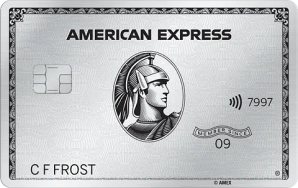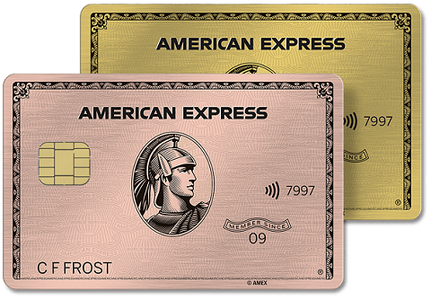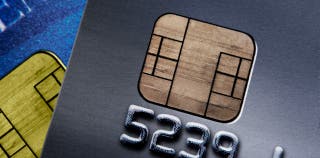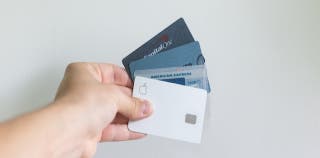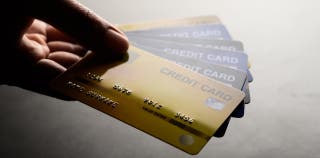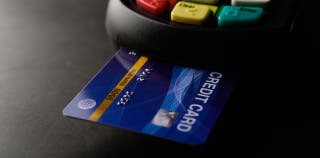What is a charge card?
A charge card is a type of electronic payment card that doesn’t require any interest charges, but there’s a catch. Unlike credit cards that let you carry a balance from one month to the next, charge cards require you to pay your entire statement balance in full, usually monthly.
With that being said, charge cards can be just as convenient for payments as credit cards are. When you add in the fact charge cards often come with rewards for spending and other perks, they can actually be quite attractive.
However, charge cards are a poor option if you may need to carry a balance when cash is tight. If you need a card that works as a line of credit you can borrow against, you’ll want to consider credit cards instead.
How do charge cards work?
Because charge cards require you to pay your balance in full each month, they typically do not come with a pre-set credit limit. This means you can charge most purchases you want to your card, but that you’ll have to pay them all off when your balance is due.
However, it’s important to note that no credit limit does not mean unlimited spending. While each card issuer handles charge cards differently, most will base your purchasing power on your regular spending habits, your income and other factors. You may not have a pre-set credit limit per se, but credit card issuers take steps to make sure you never overspend.
As an example, here’s what American Express has to say about their charge cards:
“With American Express Charge Cards, you don’t have to worry about the credit limit while making purchases. The amount you can spend in a period is evaluated periodically and you are required to pay the due amount in full at the end of every billing cycle.”
As we mentioned already, charge cards can offer rewards on eligible purchases, usually in the form of travel points or cash back. Since charge cards never charge interest, there is no regular APR to be aware of. That said, some charge cards do have an annual fee.
What is a credit card?
Unlike charge cards that make you pay your balance in full each month, credit cards extend a line of credit you can borrow against. This means you can make purchases throughout any given month and pay only a minimum payment if you prefer. When you carry a balance on a credit card, you’ll be charged interest on balances you carry beyond your credit card’s due date.
Many credit cards charge a fee for membership each year, although not all of them do. Many credit cards also offer rewards on spending, including bonus points or bonus miles on certain types of eligible purchases.
How do credit cards work?
Because credit cards let you carry a balance from one month to the next, they do assign you a spending limit that caps your purchases. Generally speaking, you can make purchases up to this limit before your card stops working. After you reach your credit limit, you’re still required to make at least the minimum payment on your card each month.
Because credit cards let you carry a balance, they can become a valuable tool in an emergency. If you have surprise expenses or bills to pay and you don’t have the cash, for example, a credit card can work as a short term loan.
Just remember that credit cards charge higher interest rates than other types of loans, including personal loans. The convenience of credit cards also makes racking up credit card debt a breeze. For those reasons, you should only carry a balance when you have to.
What is the difference between a charge card and a credit card?
The main differences between charge cards and credit cards are that charge cards require you to pay your balance in full at the end of every month, don’t charge interest, and come without spending limits. As a result, charge cards typically have higher fees associated with them than credit cards do.
Here is an in-depth look at the main differences between credit cards vs charge cards:
Charge Cards vs. Credit Cards Comparison Chart
| |
Charge Cards |
Credit Cards |
| Requires full payment of the entire balance each month |
Yes |
No |
| Charges interest on revolving balances |
No |
Yes |
| Allows balance transfers |
No |
Yes |
| Allows a cash advance |
No |
Yes |
| Charges late fees |
Yes |
Yes |
| May offer a welcome bonus upon account opening |
Yes |
Yes |
| Can earn rewards on spending |
Yes |
Yes |
| How to apply |
Fill out a charge card application online |
Fill out a credit card application online |
| Helps build your FICO score |
Yes |
Yes |
Do charge cards build credit?
Charge cards and credit cards both report to credit bureaus and will help to build your credit score if you use them wisely. However, charge cards do not have a credit limit and therefore will not take into account credit utilization such as with credit cards. Charge cards will impact your length of credit history and payment history only.
Charge cards help you build credit by building your payment history, which is the most important factor that makes up your FICO score. If you have a charge card in good standing for several years, your card could also help lengthen your credit history which is an important factor of your credit score and why canceling a credit card can hurt your credit score.
Lastly, charge cards also help add to your credit mix, which is another factor that plays a role in your credit health.
Since charge cards require you to pay your credit card balance in full each month, they don’t impact your credit utilization rate — which is the second most important factor that makes up your FICO score.
Either way, it’s important to know that charge cards report your credit payments and history to the credit bureaus. If you want to avoid having a blemish on your credit report, you’ll make on-time payments and use your charge card wisely.
Charge card benefits
If you are wondering why anyone would get a card that doesn’t let them carry a balance, it’s important to understand all the benefits charge cards offer. Some of the biggest perks you can get depend on the new card you apply for, but the major draws of these cards apply across all credit card issuers.
Charge card vs. Credit card: How to decide
The best card for you depends on how you plan to use it. If you want the option to carry a balance month-to-month, for example, a credit card is a better choice. If you’re someone who can always afford to pay their credit card balance in full, on the other hand, a credit card or a charge card would work.
In addition to considering your financial situation and how much cash is in your bank account at the end of the month, you should also think about perks and rewards. For example, you won’t find a charge card that earns Chase Ultimate Rewards points or airline miles in the American AAdvantage program. So, if those rewards programs are a priority for you, you’ll have to go with a credit card instead.
Other factors to consider include limited-time offers, cardmember perks and third-party benefits like DashPass membership, Priority Pass Select membership and Amex Centurion Lounge access.
At the end of the day, either type of card could work for your needs. Once you compare options based on these factors and others that are important to you, you’re bound to find the right fit.
Learn more about the rates and fees associated with the Platinum Card® from American Express.
Explore related articles by topic
You’ve viewed 3 of 3 articles
LOAD MORE




